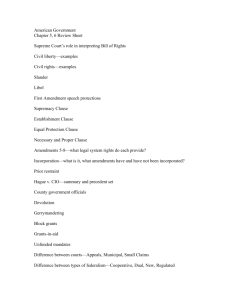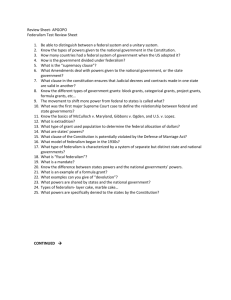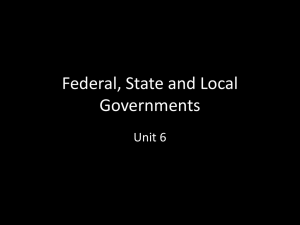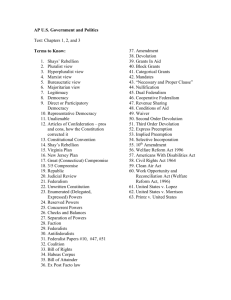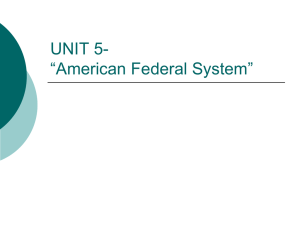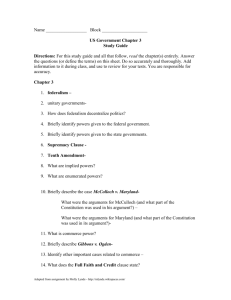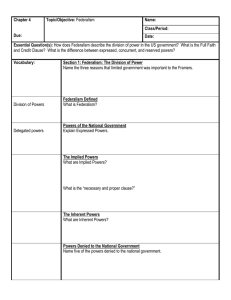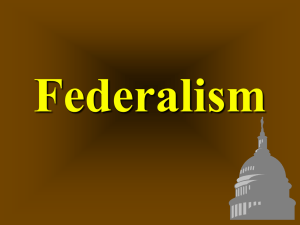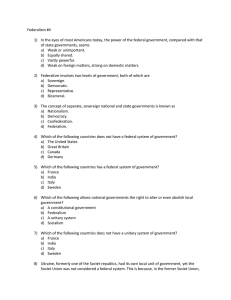Federalism Exam Review - Social Studies with Mr. Barrett
advertisement
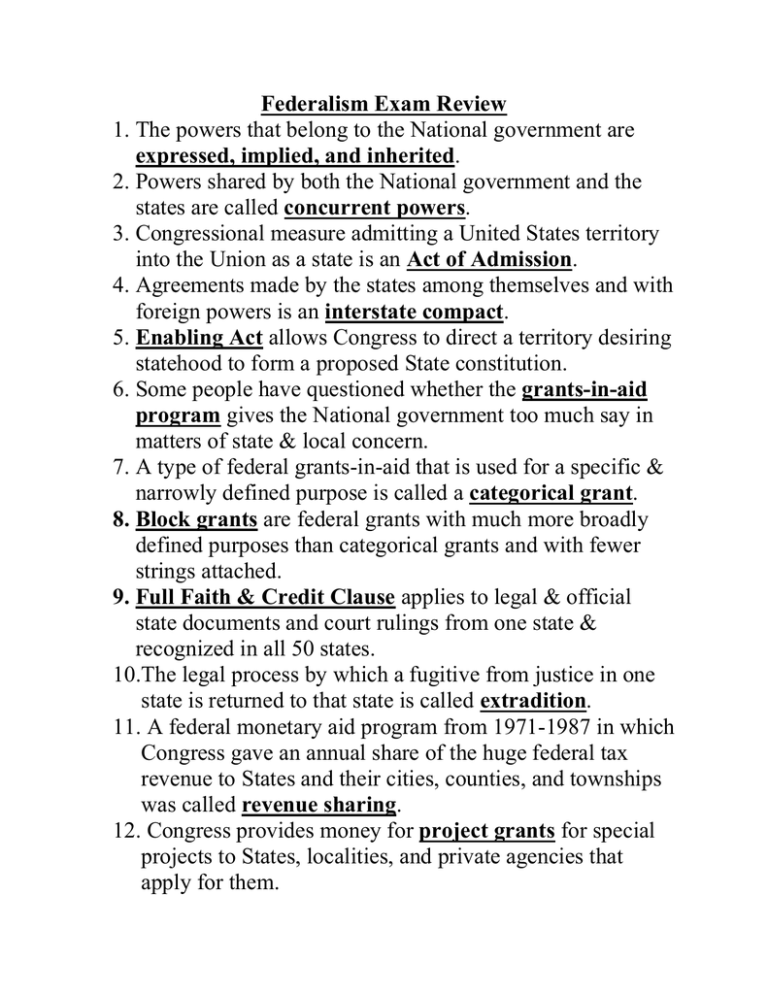
Federalism Exam Review 1. The powers that belong to the National government are expressed, implied, and inherited. 2. Powers shared by both the National government and the states are called concurrent powers. 3. Congressional measure admitting a United States territory into the Union as a state is an Act of Admission. 4. Agreements made by the states among themselves and with foreign powers is an interstate compact. 5. Enabling Act allows Congress to direct a territory desiring statehood to form a proposed State constitution. 6. Some people have questioned whether the grants-in-aid program gives the National government too much say in matters of state & local concern. 7. A type of federal grants-in-aid that is used for a specific & narrowly defined purpose is called a categorical grant. 8. Block grants are federal grants with much more broadly defined purposes than categorical grants and with fewer strings attached. 9. Full Faith & Credit Clause applies to legal & official state documents and court rulings from one state & recognized in all 50 states. 10.The legal process by which a fugitive from justice in one state is returned to that state is called extradition. 11. A federal monetary aid program from 1971-1987 in which Congress gave an annual share of the huge federal tax revenue to States and their cities, counties, and townships was called revenue sharing. 12. Congress provides money for project grants for special projects to States, localities, and private agencies that apply for them. 13. Federalism is a system of government in which a written constitution divides power of government on a territorial basis between a central or national government & several regional governments such as states or provinces. 14. Assignment of certain powers to the National Government & certain powers to the States is known as Division of Powers. 15. The act of not allowing any state to draw unreasonable distinctions between its own residents and those persons who happen to live in other states is known as the Privileges & Immunities Clause. 16. The power to coin money is a reserved power to the National Government. 17. The power to levy & collect taxes is a concurrent power for both the National Government and the States. 18. The power to declare war and raise & maintain armed forces is a National Power. 19. The power to establish public schools is a state power. 20. The power of eminent domain, or to claim private property for public use, is a concurrent power for both the National Government & the States.

